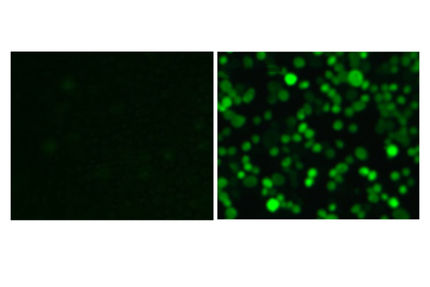Full-length genome sequencing of Zika from a patient could help unlock the virus’s secrets
The zika virus outbreak in the Americas has transformed a previously little-known virus into a World Health Organization (WHO) declared global public health emergency. Yet scientists still don’t know enough about Zika, including why and how it has spread so rapidly in recent months and what has led to the rise of new disease symptoms.
Many of the answers may lie in understanding the virus’s genomic make-up. Now scientists from the University of Glasgow have been able to shed more light on how the Zika virus works, by sequencing the full-length genome of the virus from a patient in Brazil and studying how a molecule derived from the genome fights the host antiviral response.
The research, which was led by the Medical Research Council (MRC)- University of Glasgow Centre for Virus Research, studied a Zika virus isolated from a patient with classic symptoms and shows the full genomic sequence of the virus, including non-coding regions. Importantly, the research also identified a Zika virus-derived molecule that inhibits an important part of the host’s immune system, which may be key to understanding how the virus causes disease.
The team compared the genome sequence from this South American Zika virus isolate, which was obtained from a patient in Recife, with other available Zika sequences. They then looked at the non-coding regions of the sequence which are often missing from other sequences, and detected a portion of the viral genome in infected cells called sfRNA. This is also detected in infections by related viruses such as dengue, and the authors described ZIKV sfRNA as having a similar function to those already described as it acts by inhibiting specific parts of the host cell’s antiviral response.
They suggest this study highlights the particular importance of studying patient-derived viruses and comparing them to laboratory cultured viruses, which could mutate and therefore not provide as accurate a picture of the current Zika virus epidemic.
Dr Alain Kohl, leader of the Kohl Group at the MRC-University of Glasgow Centre for Virus research, said: “We have used the information from a Brazilian isolate, which we obtained from our colleagues in Brazil and fully characterised it in collaboration with them, to identify a virus-derived molecule that inhibits a very important part of the host antiviral response system.
“It is particularly important to show this with sequence information as close as possible to the patient-derived virus, as virus strains that are adapted in cell culture may start to mutate. This information is important for understanding the pathogenesis of Zika virus infection but may also be useful for the design of attenuated viruses for vaccine studies in the future.”
The authors hope that the full-length sequence of this patient derived Zika virus will support efforts to combatting the virus. They also expect the detection of the immune system inhibiting molecule will be important to further understand the virus and how it interacts with its host.
Dr Claire Donald, the MRC-University of Glasgow Centre for Virus research, said: “This work shows that Zika virus acts in a way that is comparable in some respect to what we know about host immune response antagonism for related viruses such as dengue and West Nile viruses.
“Comparing our isolate with other Zika viruses shows that they are very similar to each other at the genetic level. Therefore it is important for us to understand what factors are involved in the development of disease as well as identifying the key differences between the strains. This may allow us to pinpoint potential outbreaks of concern in the future.”
The study was led by the University of Glasgow in Collaboration with colleagues from the Federal University of Pernambuco, Brazil, University of South Bohemia in the Czech Republic, Yale University and the Institut Pasteur de Dakarin Senegal.
Original publication

Get the analytics and lab tech industry in your inbox
By submitting this form you agree that LUMITOS AG will send you the newsletter(s) selected above by email. Your data will not be passed on to third parties. Your data will be stored and processed in accordance with our data protection regulations. LUMITOS may contact you by email for the purpose of advertising or market and opinion surveys. You can revoke your consent at any time without giving reasons to LUMITOS AG, Ernst-Augustin-Str. 2, 12489 Berlin, Germany or by e-mail at revoke@lumitos.com with effect for the future. In addition, each email contains a link to unsubscribe from the corresponding newsletter.
























































